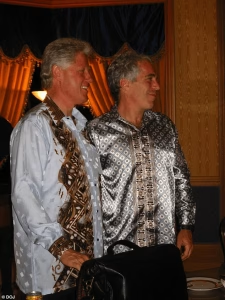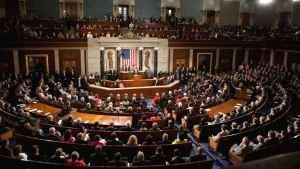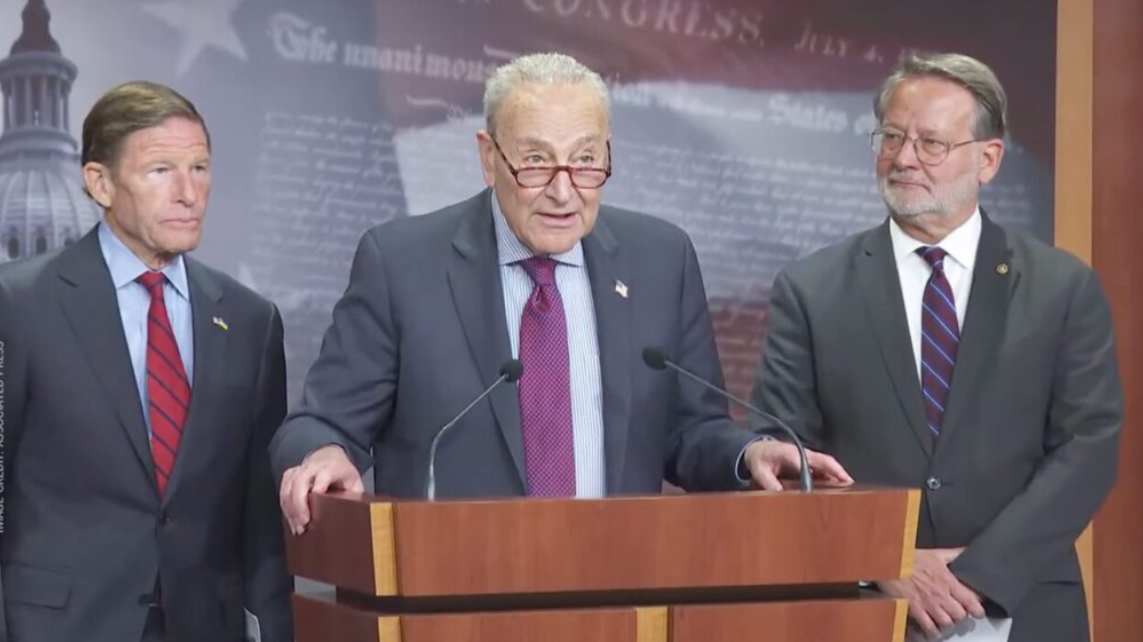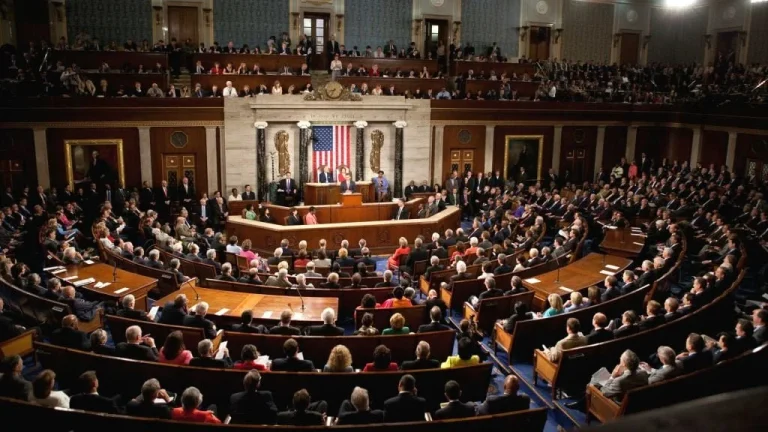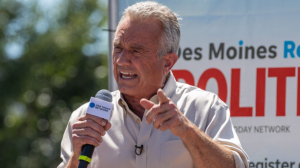Tense negotiations over dozens of federal nominations crumble just hours before Senate recess.
Talks Were Nearing a Breakthrough
Senate leaders appeared close to finalizing a major agreement before President Trump’s abrupt intervention. The bipartisan deal—hammered out by Senate Minority Leader Chuck Schumer (D-N.Y.) and Majority Leader John Thune (R-S.D.)—was set to confirm roughly 60 presidential nominees before the August recess.
Most had already cleared committee approval. The agreement would have ensured smooth progress for both parties, while also lifting Trump-era holds on certain funding streams, including NIH grants and foreign aid allocations.
But by Saturday evening, everything changed.
Trump’s Post Flips the Table
Just hours before the final vote slate, Trump took to Truth Social and issued an all-caps message condemning the deal. He accused Democrats of political blackmail and ordered Senate Republicans to walk away.
“This demand is egregious and unprecedented… It is political extortion, by any other name,” Trump wrote.
He ended the post with a parting shot:
“Do not accept the offer. Go home and explain to your constituents what bad people the Democrats are… Have a great RECESS and, MAKE AMERICA GREAT AGAIN!!!”
The impact was immediate. GOP negotiators halted all further discussions. Only seven of the original nominees were confirmed before the Senate adjourned.
Democrats Respond with Frustration
Rather than backpedal, Schumer doubled down. In a press conference, he mocked the sudden breakdown and accused Trump of derailing what could have been a meaningful bipartisan moment.
“He took his ball and went home,” Schumer said, standing next to a blown-up print of Trump’s Truth Social post. “In a fit of rage, Trump threw in the towel.”
Senator Thune, who had been negotiating in good faith for several days, offered a more measured tone:
“The asks evolved on both sides quite a bit… but we never got to a place where both sides locked it in.”
GOP Accuses Schumer of Changing the Terms
Republican senators say the deal failed because Democrats kept moving the goalposts. According to Sen. Markwayne Mullin (R-Okla.), “We’ve had three different deals since last night.”
“Every time it’s been, ‘I want more,’” Mullin said, emphasizing that Republicans believed Schumer expanded his list of demands during the final 24 hours.
Mullin defended Trump’s intervention, claiming the president was simply preventing an unbalanced agreement from moving forward. “It was never about making a deal,” he added.
What Was Actually in the Deal?
Sources say the proposed agreement included confirming dozens of non-controversial Trump appointees, in exchange for Democrats securing releases of stalled public health and international aid funding.
But there’s dispute over who altered the deal last. Democrats claim Republicans expanded their nominee list too late in the process—slipping in more partisan figures than expected.
“They should stop listening to him,” Schumer said of Senate Republicans. “If they want to govern, they can’t be in blind obeisance to Trump.”
Recess Appointments Off the Table—For Now
Though some speculated Trump might use recess appointments to bypass the Senate, Republican leaders say that’s not on the table—at least for now.
However, behind closed doors, multiple GOP senators are considering procedural rule changes in September. Such reforms could speed up future confirmations but would also face resistance from institutionalists on both sides of the aisle.
Looming Questions Ahead of September
The failed deal reflects a broader dysfunction in Washington. Lawmakers from both parties are bracing for more gridlock in the fall—especially with budget deadlines approaching and more nominations queued up.
Schumer warned that if Trump’s influence continues unchecked, additional bipartisan efforts could collapse the same way.
“He’s not interested in governing,” Schumer charged. “He’s interested in grievance politics.”
Others see a warning sign in how fragile negotiations have become in this polarized environment.
“You get to a realization,” said Mullin, “that this was never really about nominees. It was about headlines.”

Emily Johnson is a critically acclaimed essayist and novelist known for her thought-provoking works centered on feminism, women’s rights, and modern relationships. Born and raised in Portland, Oregon, Emily grew up with a deep love of books, often spending her afternoons at her local library. She went on to study literature and gender studies at UCLA, where she became deeply involved in activism and began publishing essays in campus journals. Her debut essay collection, Voices Unbound, struck a chord with readers nationwide for its fearless exploration of gender dynamics, identity, and the challenges faced by women in contemporary society. Emily later transitioned into fiction, writing novels that balance compelling storytelling with social commentary. Her protagonists are often strong, multidimensional women navigating love, ambition, and the struggles of everyday life, making her a favorite among readers who crave authentic, relatable narratives. Critics praise her ability to merge personal intimacy with universal themes. Off the page, Emily is an advocate for women in publishing, leading workshops that encourage young female writers to embrace their voices. She lives in Seattle with her partner and two rescue cats, where she continues to write, teach, and inspire a new generation of storytellers.
